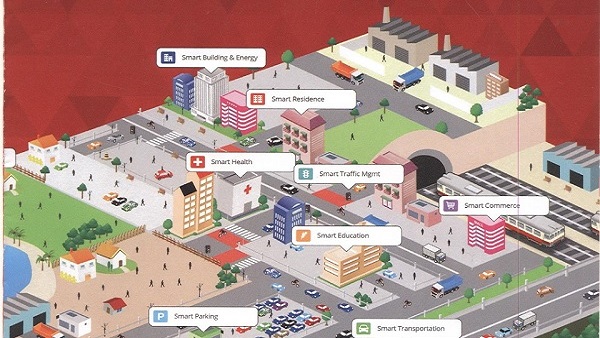
ADDIS ABABA (ECA)–A three-day multi-stakeholder capacity development workshop to support the building of effective, accountable and inclusive institutions at all levels of the Ethiopian urban governance system opened in Addis Ababa on 6 March 2019 under the theme Transformational Leadership for Sustainable Urban Development.
In a speech read on his behalf, Ethiopia’s Urban Development and Construction State Minister, Tazer Gebregziabhear, hailed the United Nations for hosting the workshop that he said will no doubt help his ministry in developing and shaping the country’s urban leaders.
“One of our important pillars in the ministry is developing and creating urban transformational leaders. We have 10 additional pillars but the foundation for all is leadership capability. Our success and failure depends on their performance,” he said.
Mr. Tazer Gebregziabhear said there was an urgent need for knowledgeable and skilled mayors to bridge the gap between reality and the vision of Ethiopia’s cities.
“We must work to have empowered, democratic and self-transformed mayors who must be change agents. This change must be transformational. Currently there is a huge gap between our cities reality and vision. To shorten this gap we must transform ourselves and our followers beyond self-interest,” he said.
The Minister added that mayors should aim for collective and not individual goals.
“Only selfless and mindful mayors can transform our cities. We must understand the challenge to manage change versus sustainability,” he said, adding he was happy experts from the Economic Commission for Africa, UNDESA and UNDP will in the next three days challenge the urban leaders to learn more about their roles, value and importance of leadership in transforming their cities.
The workshop, he said, will also allow the participants to learn more about the sustainable development goals (SDGs) and share experience in implementing them, adding his ministry will continue to work with the UN to strengthen the urban leaders’ experience.
For her part, Alessandra Casazza, representing the UN, said the 2030 Agenda for Sustainable Development provides an unprecedented and unique opportunity to deliver a more prosperous, just and greener world to everyone.
“We are, therefore, very pleased that the SDGs are at the core of this training workshop this week, because most of the investments to promote sustainable development will be made at the local level and will be led by cities, municipalities and local governments,” she said.
In fact, she said, 65 per cent of the 169 SDGs targets will not be reached without the engagement of local and regional governments.
“As Ethiopia urbanizes, local leaders and their administrations are in a privileged position to identify populations that are excluded, marginalized and discriminated against, and take concrete actions to address structural problems that sustain their condition of exclusion,” said Ms. Casazza.
She said the UN is committed to continue working closely with the Kotebe Metropolitan University (KMU) of Addis Ababa and the Ethiopian Cities Association to strengthen the capacity of local governments to deliver on the 2030 Agenda.
KMU President, Berhanemeskel Tena (PhD), said the workshop was meant to support Ethiopia’s institutional implementation capacity towards the achievement of SDGs.
“I am confident that participants will take directions and strategies to inform their leaders at all institutional levels in the Ethiopian urban governance system to be effective, accountable, and inclusive,” he said.
The workshop aims to prepare city officials to contribute towards the building of democratic good urban-governance and promoting active engagement of the urban population. It is also meant to support them to gain the skills they need to promote peaceful and inclusive societies for sustainable development and provide access to justice for all and build effective, accountable and inclusive institutions at all levels towards Goal 16 of the sustainable development goals.
Source: ECA
